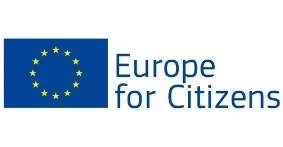introduction
This website has been made available to you by The Baltic Institute of European and Regional Affairs, ul. Tetmajera 60, 81-406 Gdynia, KRS: 0000066259, NIP: 586-21-86-376.
The administrator of personal data within the meaning of Regulation (EU) 2016/679 of the European Parliament and of the Council of 27 April 2016 on the protection of individuals with regard to the processing of personal data and on the free movement of such data, and repealing Directive 95/46 / EC ( “GDPR”), is the Baltic Institute of European and Regional Affairs, ul. Tetmajera 60, 81-406 Gdynia. The following privacy policy sets out how we may use your personal data.
How can you contact us?
If you have any questions regarding this privacy policy, you can send an e-mail to the following address: biuro@biser.org.pl.
The term “Personal Data” refers to any information that concerns you, such as your name, e-mail address and postal address. Please read this privacy policy to find out how we use your personal data after we collect it.
This privacy policy may be updated from time to time. The date of the last changes will appear on the website, so please check the privacy policy regularly. We may periodically develop new or offer additional services or functionalities. If the introduction of new or additional services or functionalities changes the way we collect or process your personal data, we will provide you with additional information, conditions or policies. Unless otherwise stated, new or additional services or functionalities introduced will be subject to the provisions of this Policy.
When do we store data?
We may collect your personal data when, while on our website, you do the following:
- You register as a user on one or more of our websites;
- You share content in our online communities;
- You register or contact you in order to make a purchase or establish business cooperation;
- You contact us about any problem or initiative by asking us a question.
- We also automatically collect certain information about visitors to our websites, as described in the section headed “Cookies” below.
What personal data do we collect from you?
The personal data we may collect from you includes:
- first name and last name;
- Postal address;
- telephone number (landline, mobile and fax);
- e-mail address.
The scope of data depends on the nature of the relationship with you and may include a wider range of data, e.g. on business activity, NIP, REGON, company name.
What do we do with your personal data?
When you provide us with the personal information indicated above, we use it for the following purposes:
- enabling you to use the services provided through the website;
- enabling you to register as a user on our websites and for events organized or co-organized by us;
- Valuation, conclusion and performance of the contract that connects us, including ensuring the correct quality of services – for the duration of the contract and settlements after its completion;
- fulfilling our legal obligations, e.g. issuing and storing invoices and accounting documents, answering complaints within the time limit and in the form provided for by law;
- archiving, we will use the data needed to fulfill legal obligations for the duration of the obligations, e.g. issuing an invoice;
- creating statements, analyzes, statistics for our internal needs, this includes, in particular, reporting, marketing research, planning the development of services or networks, development work in IT systems, creating statistical models (e.g. regarding revenue protection) – for the duration of the contract, and then for archiving purposes;
- processing your transaction or subscription and keeping appropriate correspondence with you;
- to provide you with information about events, the latest news or special offers that may be of interest to you;
- preventing and counteracting posting or sending content of an aggressive, inappropriate or offensive nature – on our websites and services.
This may include communicating the content and behavior of relevant third parties, such as government agencies, your employer, internet or email provider, and law enforcement;
administration of websites and our services.
Sharing your personal data
As a rule, we do not share user data with other entities, unless the obligation of such disclosure results from legal provisions (e.g. disclosure at the request of authorized bodies) or is necessary for implementation and takes place at the user’s request. We may also share your personal data as part of responding to incidents related to the operation of our services for our own purposes or for the legitimate purposes of a third party related to national security, law enforcement, litigation, criminal investigations, protection of the safety of any person or protection against death or injury. provided that we consider that such interests override the fundamental rights and freedoms for which protection of your personal data is required.
We may also transfer your data to the following entities:
- processing data on our behalf, participating in the performance of our activities, e.g. servicing our ICT systems, intermediaries in the sale of our services, subcontractors supporting us or others ordered by you, handling correspondence or in the customer service process,
- other data administrators processing your data on their own behalf: entities conducting postal or courier activities, entities conducting payment activities (banks, payment institutions), in order to make refunds for you or to ensure the operation of the instant transfer service, entities purchasing receivables in the event of non-payment by your accounts on time, entities cooperating with us in handling accounting, tax and legal matters – to the extent that they will become the data administrator.
What do we do with your personal data?
When browsing our website, it may be necessary to store information on your computer’s hard drive or on your mobile device in the form of so-called “Cookies” (basically a small text file). “Cookies” are commonly used by website owners to enable or improve the operation of those sites and to obtain reports.
“Cookies” (also known as “http cookies”, “web cookies” or “browser cookies”) are simply small pieces of data that are stored in text files on your computer when you visit certain websites. Their typical purpose is to enable websites to remember specific actions that you have performed in the past. For example, cookies may track when you logged into a website, when you visited certain websites or clicked certain buttons.
“Cookies” set by the owner of a website are called “owner’s own cookies”. “Cookies” created by persons other than the website owner are called “third party cookies”. Third party cookies enable third party properties or functionality to be provided on or through the website (eg advertising features and content, videos and website analytics services). Third party cookies can recognize your computer both when you use it to visit a website and when you use that computer to visit certain other websites.
Cookies may remain on your computer or mobile device for various periods of time. Some “cookies” are “session cookies”, which means that they only exist while your internet browser is running and are automatically deleted when you close it. Other “cookies” are “permanent cookies”, which means that they also remain after you close your browser and can be used by websites to recognize your computer when you open your browser and restart Internet browsing.
We use cookies for several reasons. For example, they allow us to track the interests of our users, which allows us to increase the attractiveness of our website.
Are cookies harmful?
Cookies cannot harm you or your computer. They must not contain viruses, cannot install harmful software, and cannot damage your computer in any way. Although the Baltic Institute of European and Regional Affairs uses “cookies” to collect encrypted information in order to improve your user experience on our website, this information is never personally identifiable information. We do not use “cookies” to store any sensitive information such as name, address or contact details.
You have the right to decide whether to accept or decline cookies. You can also set or change the settings of your internet browser to accept or decline cookies. If you choose to decline cookies, you will still be able to use our website, however your access to certain features and areas of this website may be restricted.
What are your rights in terms of data processing?
We guarantee the fulfillment of all your rights under the General Data Protection Regulation “GDPR”, meaning Regulation (EU) 2016/679 of the European Parliament and of the Council of 27 April 2016 on the protection of individuals with regard to the processing of personal data and on the free movement of such data and repealing Directive 95/46 / EC, i.e. the right to access, rectify and delete your data, limit their processing, the right to transfer them, not to be subject to automated decision making, including profiling, and the right to object to the processing of your personal data .
The right to access personal data – Each user may request information about what personal data we process, including a copy of their personal data.
The right to rectify personal data – the User may request the correction of incorrect data or supplementation of incomplete data.
The right to delete personal data (“the right to be forgotten”) – the User may request the deletion of all his data in some cases, including in the event of withdrawal of consent to their processing (if it was the only basis for processing) or when the data was processed unlawfully. Important! The user will not be able to exercise this right when data processing results from the fulfillment of obligations under the law and when processing is necessary to establish, assert or defend claims.
Right to object – the User may at any time request the suspension of data processing for reasons related to his particular situation in the event that the user’s data is processed for purposes arising from legitimate interests (e.g. for the purpose of keeping statistics and analyzes). In this case, the Administrator will cease to process personal data, unless there are legally valid and justified: (1) grounds for their processing, overriding the interests, rights and freedoms of the user, or (2) grounds for establishing, investigating or defending claims.
The right to limit the processing of personal data – the User may request “blocking” of data (i.e. stopping data processing operations beyond their storage) in certain situations, including in the time necessary to correct them or when they are no longer needed, but their storage is needed by the user, e.g. to protect his rights.
The right to transfer personal data – the User may request to receive the data he provided in a structured, commonly used and machine-readable format. The user may request obtaining this data or sending it directly to another, designated administrator, if technically possible.
In addition, in the event of a suspected violation of the provisions on the protection of personal data, the user has the right to lodge a complaint with the President of the Office for Personal Data Protection.
What are your rights in terms of data processing?
Our goal is to protect your personal data as a website user. We implement appropriate technical and organizational measures to protect your personal data, but remember that no system is ever completely secure. We have implemented various rules, such as access and storage policies, to protect against unauthorized access and unnecessary storage of personal data in our IT systems, such as Web page.







